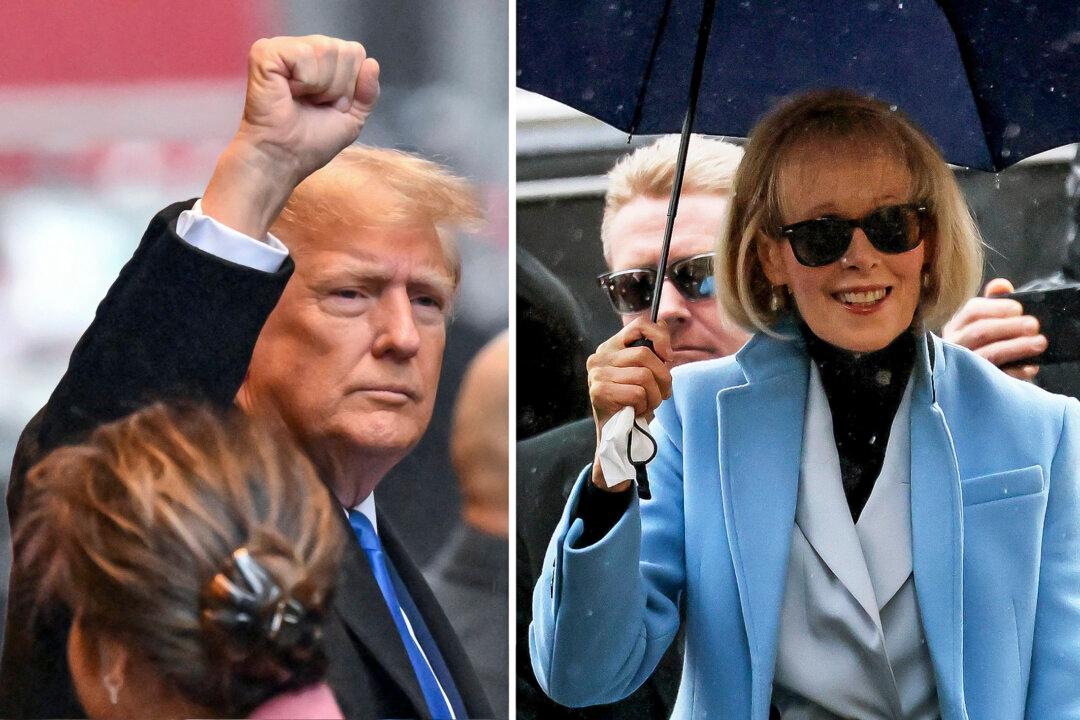On Jan. 25, former President Donald Trump testified in the defamation case brought against him by writer E. Jean Carroll, but only briefly.
Leaving the courtroom, he said, “It’s not America; this is not America.”

On Jan. 25, former President Donald Trump testified in the defamation case brought against him by writer E. Jean Carroll, but only briefly.
Leaving the courtroom, he said, “It’s not America; this is not America.”